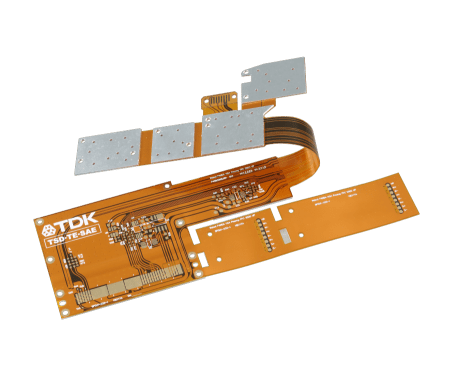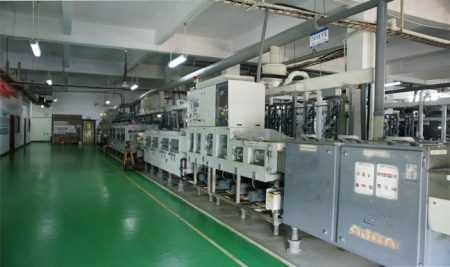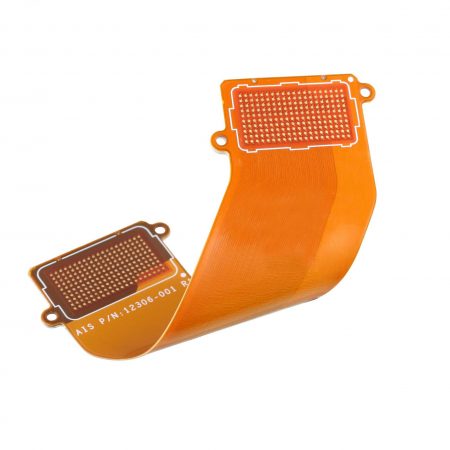- +86-755-23012705
- Building 3, Jinfeng Industrial Park, Fuyong Street, Baoan District, Shenzhen ,China
- [email protected]
FPC is a flexible circuit board that can be folded and bent, and is generally used for the connection of the upper and lower parts of the flip phone, the protection circuit of the battery, etc.
Battery FPC is generally 1~2 layers, and multi-layer FPC is relatively rare. The base material and cover layer of flex PCB are generally made of polyimide, and the substrate and copper foil are pressed together. THE THICKNESS OF SOME FPCS IS INDICATED BY THE THICKNESS OF THE COPPER FOIL, SUCH AS 1.5OZ, 2.0OZ.
Unlike PCB, the opening of the Cover Layer on the copper foil is generally smaller than the area of the copper foil, while the area of the Solder Mask on the PCB is generally larger than the area of the copper foil. It should be noted that the FPC substrate and the copper foil are bonded by resin, and in some cases, the resin will spill and cause pad contamination and solder leakage.

Because the flatness of flexible circuit board is relatively poor compared with PCB, and there are also various factors such as support and tape, it is difficult for FPC to be completely pasted with the screen board in the printing process, which will cause problems in the control of solder paste.
According to the actual experience, there are two suggestions for the opening of the stencil: one is that the stencil should narrow and elongate the mesh as much as possible for the IC components with dense pins, and the stencil should be as thin as possible, and practice has proved that the inverted trapezoidal mesh is more beneficial to printing. The other is to enlarge the mesh as much as possible for the sheet components or connectors with a relatively large span to avoid missing soldering caused by uneven FPC.
Because the battery FPC needs to be supported, the profile setting of the reflow oven must consider the absorption of heat by the support plate during reflow soldering, and the temperature below the reflow oven is generally recommended to be set a part higher than the above in the hot area to ensure that the temperature of the support plate is similar to that of the FPC to avoid cold welding, and then the cooling air at the outlet should be strong to ensure that the temperature of the support plate is lowered to a safe temperature, and a cooling fan can also be added at the exit of the road.

In order to ensure the flatness of the flexible circuit board, the manufacturer generally flattens the battery flexible circuit board before shipment, and because the FPC is flexible, it is difficult to use vacuum packaging. Therefore, in the process of transmission and use, pay attention to ensure the flatness of the FPC and try not to bend.
FPCs are supported throughout the SMT process, usually not made of heat-resistant and anti-static synthetic materials, and some companies use thin aluminum sheets for support. A common positioning method is to use high-temperature tape to glue the FPC to the support plate.
However, it should be noted that the position of the tape should be in the middle of the four corners and the longer side of the FPC, which can prevent the battery flexible circuit board from cocking. In addition, the thickness of the tape will have a certain impact on the solder paste printing. So the position of the tape should not be attached to the edge of the dense component and around the component with thin pins, and more attention should be paid not to stick it to the pad.

In order to facilitate the separation, the FPC and the edge are generally pre-cut along the contour, and the uncut part generally retains a layer of substrate (Micro Joint) and needs to make a stamp hole on it, which can not only facilitate the division but also prevent large burrs at the split point.
The connection part also ensures that the flexible circuit board does not warp during the SMT process, so the Micro Joint should be kept at each incision in the FPC. The cutting of flex PCB can be split by hand or using a special die similar to that of a punching machine
Discover a World of Possibilities with XPCB Limited
At XPCB Limited, we’re here to help you explore new horizons. Our advanced PCB manufacturing, rapid prototyping, and turnkey PCBA solutions make it easy for you to turn your ideas into reality. Trust us to deliver excellence and reliability every step of the way. Join us and experience the power of innovation with XPCB Limited by your side.






XPCB Limited is a premium PCB & PCBA manufacturer based in China.
We specialize in multilayer flexible circuits, rigid-flex PCB, HDI PCB, and Rogers PCB.
Quick-turn PCB prototyping is our specialty. Demanding project is our advantage.
Tel : +86-136-3163-3671
Fax : +86-755-2301 2705
Email : [email protected]
© 2024 - XPCB Limited All Right Reserve
